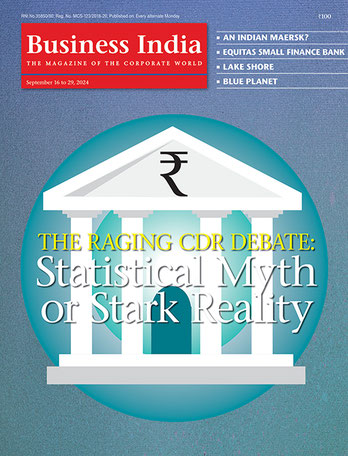Large conglomerates or SMEs, public or private, venture capital-backed or bootstrapped – everywhere in the world, companies are facing new pressure on environmental, social and governance (ESG) issues. Investors and regulators worldwide are pushing hard for solid, objective corporate ESG disclosure. In the US, the Securities and Exchange Commission has proposed a task force to examine ESG disclosure standards, seeking more objective, comparable data. Developing nations like India will soon start following. We’ll likely see new Federal disclosure ideas by the end of the year. The Biden administration and new leadership at federal enforcement agencies are making mandatory ESG and climate measures a high priority, not just because UN started the new initiative. ESG regulations are already starting to bite for businesses. Earlier this year, the European Union launched its Sustainable Finance Disclosure Regulation (SFDR) rules requiring asset managers and advisors to factor sustainability data into their investments. This will drive solid, objective disclosure metrics, with penalties for failure. One theme that stood out in the Dubai Expo 2020 across many developed nations was sustainability. In Germany, asset manager DWS is now under investigation for false “greenwashing” disclosures on its investments. The concept of ESG in company strategy, operations and reporting is both so widespread and irresistible that business leaders have accepted that it will be an inevitable factor going forward. But most of the discussion and advice you encounter is still at the stage of preaching how crucial ESG has become – like pitching a sale, but never closing. Corporate board members are getting the message loud and clear: That ESG can’t be ignored. However, there’s very little tactical guidance on what they should actually do about it. How does your board build practical ESG discussion and oversight into its structure, agendas, reporting and actions? Who are the ESG resources with what skills, you’ll need in the boardroom? How can you assure relevant, actionable data on company ESG status? What ESG standards and reporting frameworks are out there, and which should guide your board? We have developed a programme for global boards precisely on this area. Most of the big concerns and activism agendas come under the Environmental heading, but that covers lots of sub-concerns. Climate alone has many subsectors, and any of these might be your company’s hottest issue. Social matters bring controversies of their own, and the continuing discrimination against minorities and gender equity make this a hot topic. Governance is the last letter in ESG, and often tends to lag behind as a concern. But this is the arena where items like board makeup and structure, voting rights, and shareholder powers are battled over. G covers the proxy voting tools used to advocate for the E and S matters, and activists know how to use these to good effect. There are several important steps in your board rolling up its sleeves to make ESG part of its portfolio. All are important, but a first one should be structural. This requires several sub-steps:
-
Corporate board members are getting the message loud and clear: That ESG can’t be ignored. However, there’s very little tactical guidance on what they should actually do about it
• Your management team: Start by identifying the management players with responsibilities, powers and expertise on company-specific ESG matters. Since ESG covers so much turf, you’ll want broad input. The CXOs – finance, HR, legal, investor relations, and compliance or disclosure staff – all have a piece of ESG. If you’re a smaller or closely-held company, you likely won’t have all these titles, but you’ll still need their expertise. An ESG shape-up can be a good motivator for venture or private companies to formalise how these tasks (which you now manage informally) should be allotted. Designating a “management” ESG committee not only makes results more likely, it tells your stakeholders that ESG is taken seriously.
• The board talent: We have always advocated for the use of a board “skills matrix” to assess the talents a board currently has, what it lacks, and how succession planning and training can fill gaps. Now, add ESG background and credentials to your matrix. Every board doesn’t need a climate scientist, an environmental lawyer, or a rep from a human-rights organisation. Start by digging into the environmental and social skills your current directors have tucked away in their vitae. How can you tap this experience to shape ESG oversight and credibility? What gaps can you identify on the board in managing company ESG challenges? Also, look into the backgrounds of current and potential board members for ESG negatives. You don’t want shareholders or activists to be the first to notice a director previously served on the board of a company with a major environmental disaster.
• The board structure: How the board shapes itself to oversee ESG brings its own challenges. ESG should be integrated into the agenda of the full board, but this can push towards an ineffective check-box approach. Directors get a brief report that all is well on ESG (with lots of numbers and charts), and then moves on. Start by looking at the bylaws and agendas of current committees and asking how they can take on specific pieces of the ESG spectrum. The audit committee incorporates ESG materiality measures, risk, and disclosures. Compensation should factor ESG goals into pay measures and incentives, top exec/median employee pay balances, and stakeholder comp concerns. The nominating/governance committee can serve as the board’s overall ESG wrangler, and also factor board skills into its work, board ESG education, and stakeholder communication
ESG is still a new language in most boardrooms. But it’s fast becoming a language your board must learn. Our board ESG toolkit programme is designed to equip the boards of tomorrow with the right ESG processes.
Corporate Report
The TAFE-AGCO imbroglio: What is at stake?
The fracas has become a litmus test case for Indian firms, which seek to assert their legitimate place in the international business world
Cover Feature
Hyundai in an acceleration mode
Hyundai’s IPO is luring investors with a good value proposition
Agriculture
GHCL Foundation's horticulture initiative: community development and farmer prosperity
Published on Jan. 21, 2023, 3:49 p.m.The introduction of black pepper as an inter-crop in the sopari and coconut orchards, has enabled farmers to cultivate crops simultaneously
Skill Development
Mastercard empowers young Indian women through expansion of Girls4Tech programme
Published on Jan. 21, 2023, 3:43 p.m.In 2020-21, the programme reached over 112,482 girls in urban and rural locations across six states in India, including 10,000 across Delhi
Collaboration
Mercedes-Benz accelerates with Sustainability Dialogue and Innovator Fellowship Programme
Published on Jan. 21, 2023, 3:34 p.m.The event brought together stakeholders and changemakers to participate in a series of conversations on global trends and recent developments
Healthcare
Brushing up on Oral Health: Colgate-Palmolive India teams up with Andhra Government
Published on Jan. 21, 2023, 3:28 p.m.The programme will focus on educating children on oral health and building awareness around the dangers of tobacco use
Biogas
BioEnergy will showcase its innovative biogas technology in India
Mobility
Ather aims to produce 20,000 units every month, soon
Green Hydrogen
German Development Agency, GIZ is working on a roadmap for a green hydrogen cluster in Kochi
Renewable Energy
AGEL set to play a big role in India’s carbon neutrality target


































